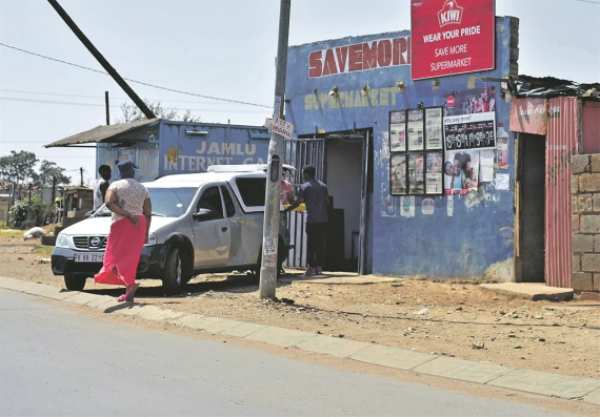The Covid-19 pandemic has ruthlessly swept away many of the assumptions we once held about how companies, economies and governments should work. Regulations that were once sacrosanct - such as competition laws - are being paused to allow large and small retailers to work together to ensure supply chains are robust in a time of upheaval.
Governments and central banks, meanwhile, are unleashing radical measures to support economies. That would have seemed unthinkable even during other times of global economic stress such as the Great Financial Crisis. And businesses from big-brand, high-street retailers, to the personal trainer at the local gym are needing to deliver their services and products online.
This profoundly changed landscape will not leave the commercial relationships between brands and their agencies untouched. As brands look to their partners in this hour of need, it will be trusted agencies and consultancies that know how to drive ‘speed to value’ that will emerge strongest from the turmoil.
Here are a few trends unfolding in the grip of the coronavirus, many of which we can expect to accelerate even once some semblance of normality returns to the world:
1. Consolidation of client spend accelerates consolidation of the market
Like some of the other trends I highlight in this article, this trend is an acceleration of an existing move in the market. For several years, brands have been looking to consolidate marketing spend with one or two key partners globally, while marketing consulting firms and agencies have pursued mergers and acquisitions to offer a more complete and integrated offering.
These related trends will speed up as brands consolidate spending with trusted, strategic suppliers, cut back on discretionary spending, and take a cautious stance on partners and projects. Brands will have more leverage in their relationships with their service providers, while agencies will have more incentive to work with key clients.
2. Fast-tracked shifting of budget to online and digital channels
With no footfall in highstreets around the world, brands are focusing their immediate attention to e-commerce and logistics to get product into the hands of the consumer. Two articles recently written by Wunderman Thompson Commerce (Article 1, Article 2) show that all brands are now in the delivery business.
3. Remote working
Despite the hype around remote and mobile working for the past 15 years, many global organisations have been reluctant to adopt it on a larger scale. Covid-19 and the era of physical distancing has forced even companies that were once reluctant to embrace remote work to get on board.
Except for some essential services workers, everyone is a remote worker for now. The genie is out of the bottle and it will be difficult to jam it back. While there are some hiccups around managing remote staff and the infrastructure, the sheer number of people successfully working from home right now shows that it can work.
As this situation is normalised, brands will be less concerned about whether agency resources are on-site, near-shore, off-shore or even in the same time zone. They will simply want to know whether they are seeing ‘speed to value’ and if the agency or consulting partner has the tools and processes to effectively manage virtual teams. Partners that have embraced remote working for the last decade are best positioned for this shift because they have the right processes and tools in place and a culture that embraces them.
4. Agile methodologies
Many brands use the buzzword ‘agile’ while very few work in a truly agile manner. However, this is changing fast as we find ourselves working in virtual teams. The Delivery Management Office (DMO) in agencies and consultancies is playing a significant role in managing this change in the way we work. The DMO is, of course, meeting each day with clients and delivery teams — what we refer to in agile methodologies as the daily stand-up.
With the need to show rapid results when driving leads into the funnel or optimising the existing funnel, there is more emphasis on ‘quick wins’. Brands are looking for wins within two-week windows to keep pace with their evolving environments. These windows dictate that their partners deliver value in two-week sprint cycles. We are moving to agile working faster than ever—at times without realising it.
5. Cooperation across the supply chain
Most organisations realise that everyone is in this pandemic together and that the best shot at coming out of it stronger is to collaborate. Brands simply cannot allow their supply chains to fail because of the revenue and reputational risks. Some are looking at how they can help partners up and down the supply chain by, for example, paying earlier or investing in key business partners.
6. A move towards value-based pricing
This is perhaps the most important change I’m expecting to see over the next few months. With brands asking their suppliers for instant value they are less concerned about where resources are located or the number of hours they work, but they do care a great deal about the value and the output.
Consultancies and some agencies have been using ‘value-based pricing’ for a while, in other words, asking clients to reward them based on their output. This ensures the supplier is remunerated for the value they drive, not just the hours they work. Brands will be more open to value-based pricing as it gives them speed to value. Some may even drive the conversation.
7. Closer partnerships between commercial and procurement teams
In these times when companies are looking to save cash, we can expect to see brands turn to the partners they trust the most for support. The agencies and consultancies with the breadth and depth of service to support them across the entire sales funnel will be best placed to succeed in these uncertain months.
One of the keys to success will be the relationship between commercial teams at agencies and procurement teams at brands. The commercial process will be streamlined to unblock the quickest pathways to value, with a focus on accelerating negotiations and building a platform for mutual success.
As Mark Read, CEO of WPP, recently said, we are seeing 10 years of innovation unfold in the space of just four weeks. He is correct when he says the way we communicate, travel, work, shop, use financial services, educate our children, have all been turned on their head. What has not changed is the need for close collaboration between consulting firms/agencies and brands. Our relationships may have moved to the virtual realm, but they are more important than ever.
Article Source: https://www.bizcommunity.com/Article/196/610/203897.html





